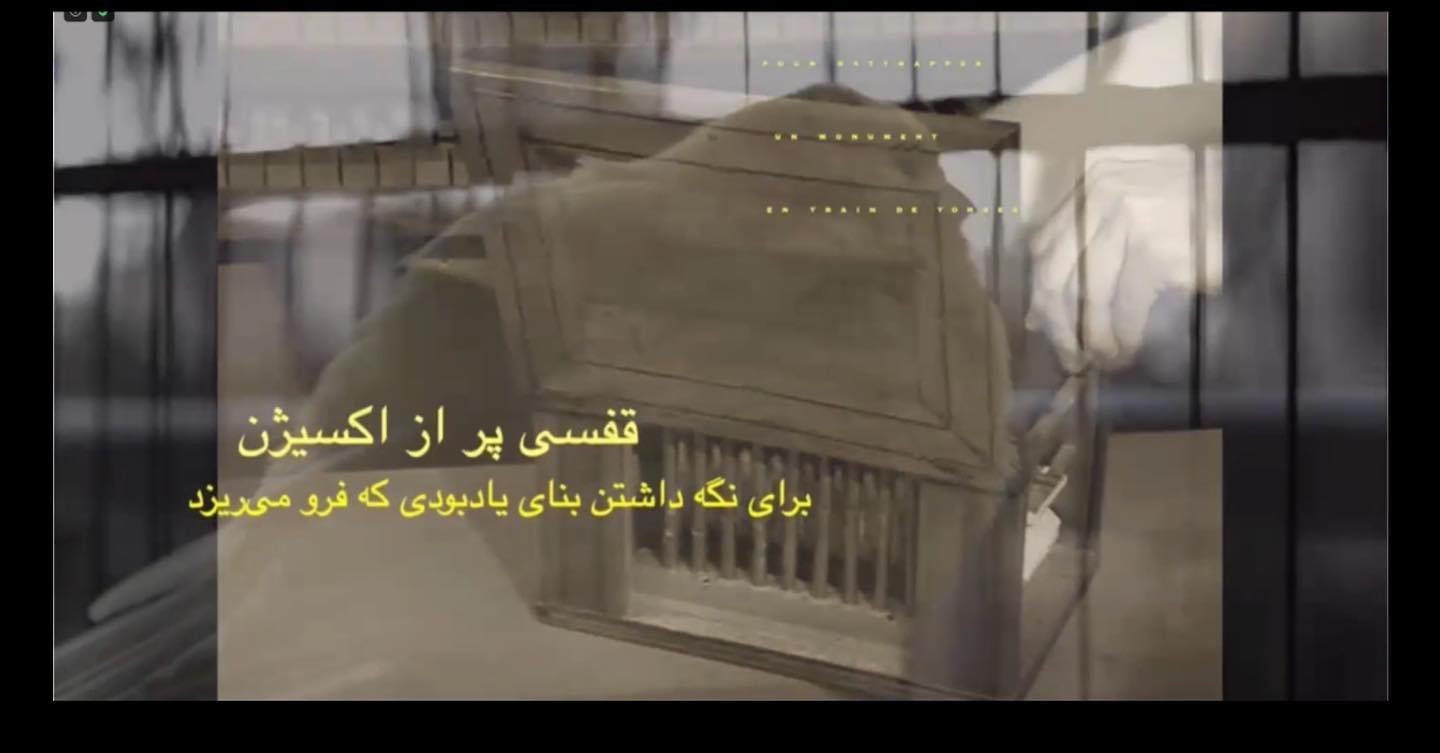ECO-TRANSLATION AT UWARWICK
If you happen to be in Coventry tomorrow *please join us* for a conversation hosted by the one and only Jonathan Skinner.
(Image ID: canary meets serinette from my "Syrinx Spring"; Translations courtesy of Maryam Faridani & Joshua G. Stein)
Approaches to Eco-translation, 5-7pm, 25 November 2021
WBS Teaching Centre, M2 (on-campus event, livestream TBC)
University of Warwick
A mini-symposium with Jennifer Scappettone, Daniel Eltringham, & Zoë Skoulding
“What the Canary Said: From Opacity to Shimmer in Argots of the Copper Lyre”:
Jennifer Scappettone’s current cross-genre book project tracks the expansive, yet largely obscured networks of mining, refinement, and salvage undergirding copper extraction economies across global resource networks and commodity frontiers to develop the concept of a critical geopoetics, arguing for the value of routing research into geology, labor history, infrastructure studies, and industrial heritage through poetic composition as a means of rendering polyphonic the origins and far-reaching environmental consequences of the global network. Through the image of the “copper lyre”—an imagined yoking of telecommunicative infrastructure to forge a poetically resonant instrument—it explores the ability of lyrical forms to sound the subdued externalities of the so-called global village by making visible, and literally by “airing,” material archaeologies eclipsed by the etherealized image of the cloud. Scappettone will close by presenting strains of her recent poetry and installation work that explore what’s missing from Anglocentric frameworks of environmental humanities and activism: both possibilities for cross-cultural solidarity enabled by wide-ranging translation practices among workers of the world and the wisdom roused by opening to languages outside one’s province and species of mastery.
“Creaturely Insurgence: Liberation Ecopoetics in Translation”: Daniel Eltringham
What might be the tentative contours of a translingual liberation or "guerrilla" ecopoetics? I suggest tracking the movements of such militant ecologies in translation networks that bridge Latin American decolonial struggle and Anglophone small-press poetries, spreading solidarity that extends to the more-than-human lifeworlds of rural guerrilla insurgency. I will discuss creaturely insurgence in poems by three guerrilla poets, none of whom survived the 1960s: Che Guevara’s vengeful green caiman as an emblem of more-than-human liberation; Javier Heraud’s buzzing fly as a vector of resistance to counter-insurgency's targeting of ecological reproduction; and Rita Valdivia’s poetry of militant kin-making, which expands the creaturely beyond species-distinctions. In “eco-translation” (Cronin 2016), the belated, uneven movements these texts make from material environments of struggle to textual spaces responsive to the theoretical concerns of ecopoetics provide a medium for thinking biosemiotic entanglements in transcultural and -historical ways. But to propose a "translational" guerrilla ecopoetics confronts Anglophone environmental traditions with the intertwined emergencies of decolonial struggle and the unevenly distributed consequences of contemporary earth-systems breakdown, suggesting juster interweavings of language and world.
“Birds of North America: Birdsong and the Borders of Language”: Zoë Skoulding
Birdsong, although often drowned out by human activity, is a widespread aural experience of other species as well as a gauge of ecological change. With reference to ideas about translation and relation drawn from Walter Benjamin and Édouard Glissant, as well as Karen Barad's comments on how the world makes itself 'differentially intelligible', this talk will attend to the insistent presence of birds in contemporary US poetry, exploring its relationship to languages and borders in colonial and neocolonial contexts. Don Mee Choi’s ‘Sky Translation’ in DMZ Colony juxtaposes the initially baffling noise of American snow geese with the heavily militarized frontier between North and South Korea, using it to explore the border between language, sound and image. While Nathaniel Mackey’s ‘Song of the Andoumboulou: 285’ riffs off the medieval Persian poet Farīd al-Dīn Aṭṭār to imagine ‘the birds we were or the birds we’d be’ as a potential future for humans rooted in ancient song, Layli Long Soldier’s references to dead or absent birds, from her Oglala Lakota perspective, mark points of political resistance. Drawing attention both to the multiplicity of human languages and to non-semantic sound, birds and birdsong bring to the poem a call to new forms of ecological awareness.
Spaces limited! Please RSVP to Jonathan Skinner at J.E.Skinner@warwick.ac.uk
Co-sponsored by the Department of English & Comparative Literary Studies, the Institute of Advanced Study, & the Environmental Humanities Network, University of Warwick
